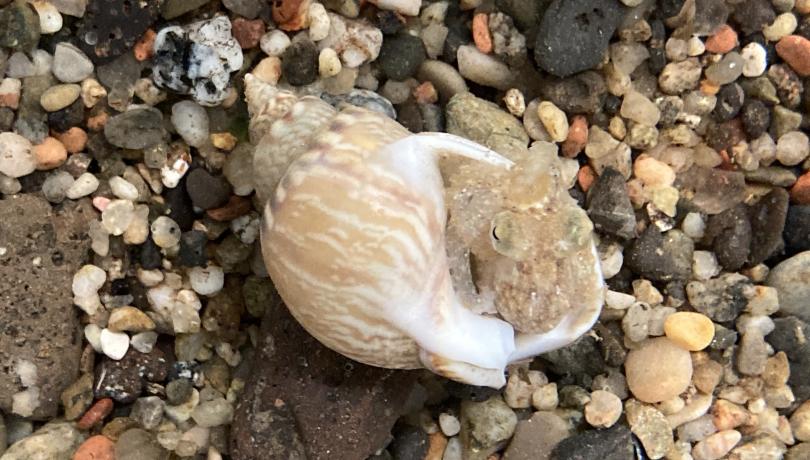Details are outlined in a study by the Institut de Ciències del Mar (ICM-CSIC) recently published in the journal Reviews in Fish Biology and Fisheries.

A new study led by the Institut de Ciències del Mar (ICM-CSIC) has, for the first time, revealed the diet of juvenile common octopus (Octopus vulgaris) and their role in the Mediterranean's ecology. The research, conducted within the framework of the State Plan projects OCTOSET and ECOPHYN, provides results that help to identify the dietary requirements of octopuses during the most elusive phase of their life cycle.
The authors of the study, published in the journal Reviews in Fish Biology and Fisheries, emphasize the importance of understanding what newly settled octopuses on the seabed feed on after the planktonic stage of their life in the water column. This is particularly relevant as they are one of the most commercially valued fishing species, so understanding their diet at each life stage is paramount to understanding their position in the food chain and the structure of their exploited populations.
"Thanks to this research, carried out in constant collaboration with the fishing sector, we have been able to reveal, for the first time, the natural diet of newly settled and juvenile octopuses, which could be useful for managing invasive species in the Mediterranean," comments Oscar Escolar (ICM-CSIC), lead author of the study.
In this regard, the study's findings reveal that juvenile Octopus vulgaris are specialists in consuming a group of small crustaceans known as amphipods, including the invasive species Jassa slatteryi, which octopuses, particularly favour. This suggests that they could play a significant role as regulators of this non-native species that have colonised the Mediterranean.
"90% of the analysed stomachs contained remains of Jassa slatteryi, indicating that small octopuses might perform a regulatory function of this invasive species," explains Fernando Á. Fernández-Álvarez (ICM-CSIC), co-author of the study.
The accuracy of molecular techniques
According to the article, as juvenile octopuses grow and their arms increase in relative size and muscular strength, their diet diversifies to include a broader range of crustacean and bivalve species. This level of detail has been made possible thanks to the use of molecular techniques, which have also detected that hydrozoans are the second most common group in the diet of juvenile octopuses.
“This information would have been challenging to obtain using visual prey identification techniques based on the morphology of stomach contents, as hydrozoans are composed of 90% water, and given the extremely rapid digestion times, it is difficult to identify remains of these prey,” notes Roger Villanueva (ICM-CSIC), coordinator of the research.
A new utility model
The octopus specimens used for this study were captured using an innovative juvenile octopus collector, registered with the Spanish Patent and Trademark Office as a utility model. The device has already attracted interest from research groups in other countries, which, according to the scientific team, "could lead to the replication and validation of these experiments in various areas."
Specifically, for the development of the research, bi-weekly sampling was conducted over three consecutive years in the octopus fishing area of Vilanova i la Geltrú (Barcelona), which will allow, for the first time, the determination of the settlement patterns on the seabed and the population recruitment of this highly commercially significant species.
Looking ahead to future research, the researchers will continue to delve into the trophic ecology of the common octopus, seeking to decipher how changes in cephalopod diets might influence the composition of the microbiome in their digestive tract, a study that has not yet been undertaken. The study of the microbiome of the octopus digestive tract offers important parameters for understanding its health and well-being states, microbian evolution, and symbiosis, in addition to its biotechnological potential for the production of enzymes and bioactive compounds. At the ecological level, this knowledge can help in the conservation of marine ecosystems where octopuses live, detect early signs of ecological disequilibrium and microbial diversity, as well as in the evaluation of the impact of the climate change.